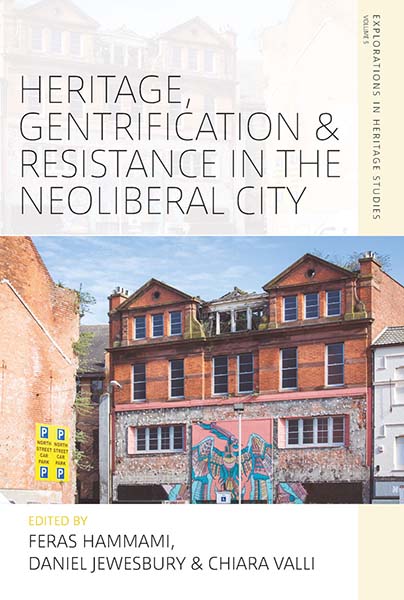-
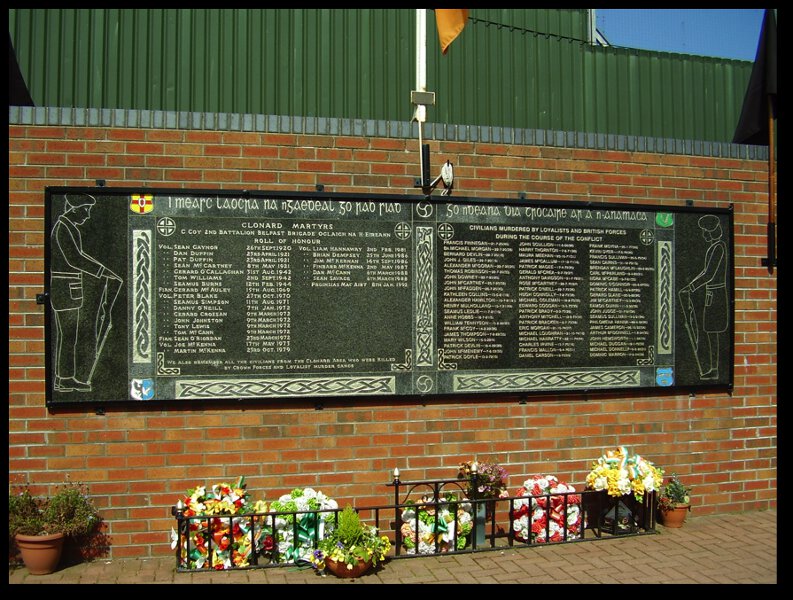
PIRA Clonard Martyrs memorial garden (central plaque) © Elisabetta Viggiani
-
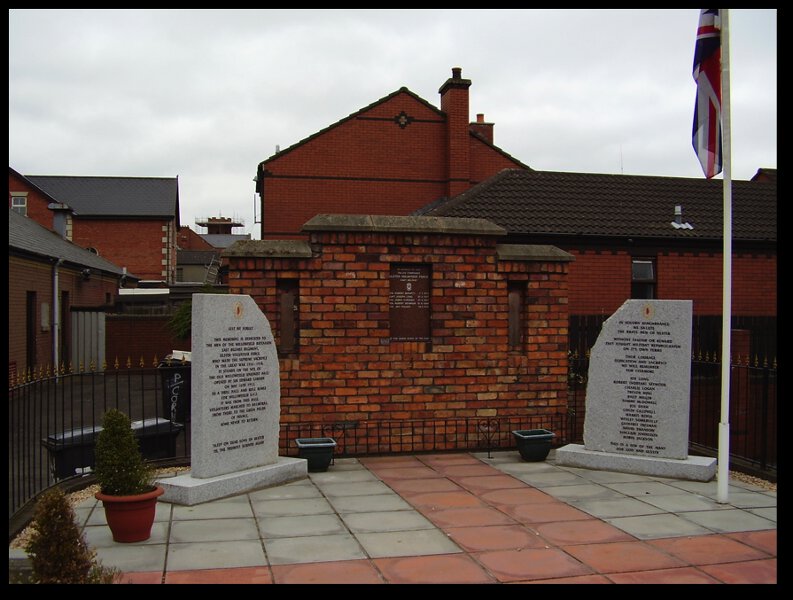
UVF 2nd Battalion Willowfield memorial garden © Elisabetta Viggiani
-
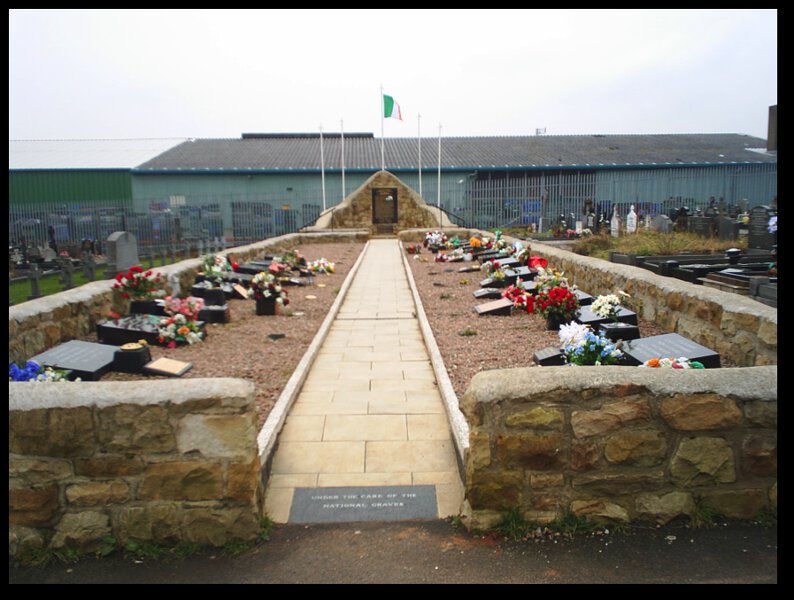
PIRA communal plot, Milltown Cemetery, Belfast © Elisabetta Viggiani
-
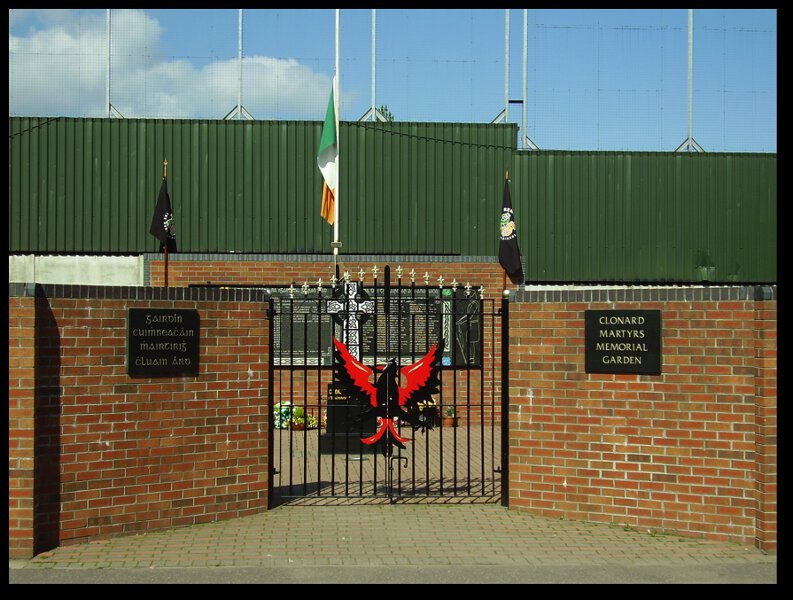
PIRA Clonard Martyrs memorial garden © Elisabetta Viggiani
-
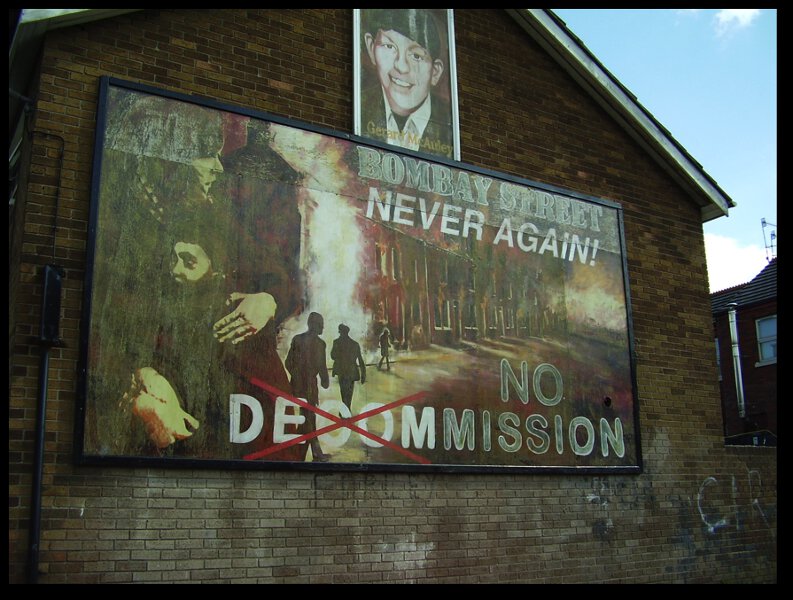
Mural in memory of Fian Gerard McAuley (2006) © Elisabetta Viggiani
-
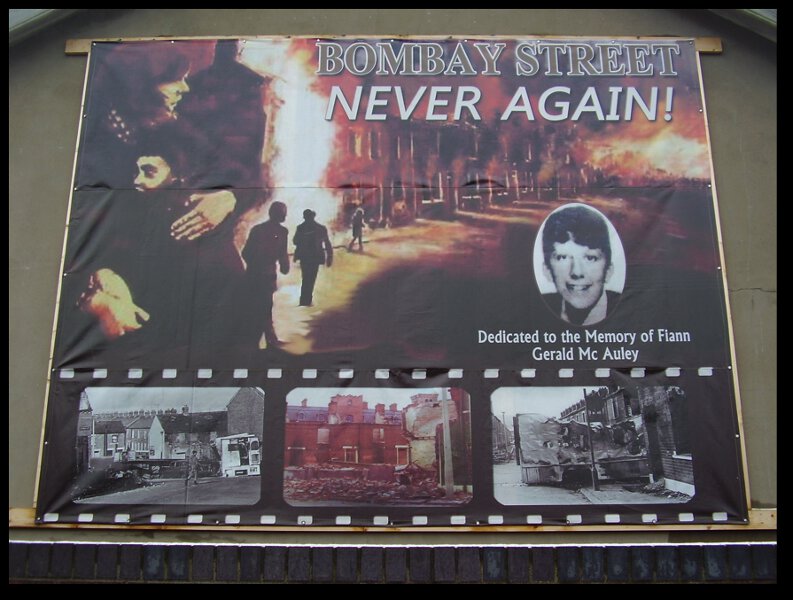
Mural in memory of Fian Gerard McAuley (2008) © Elisabetta Viggiani
-
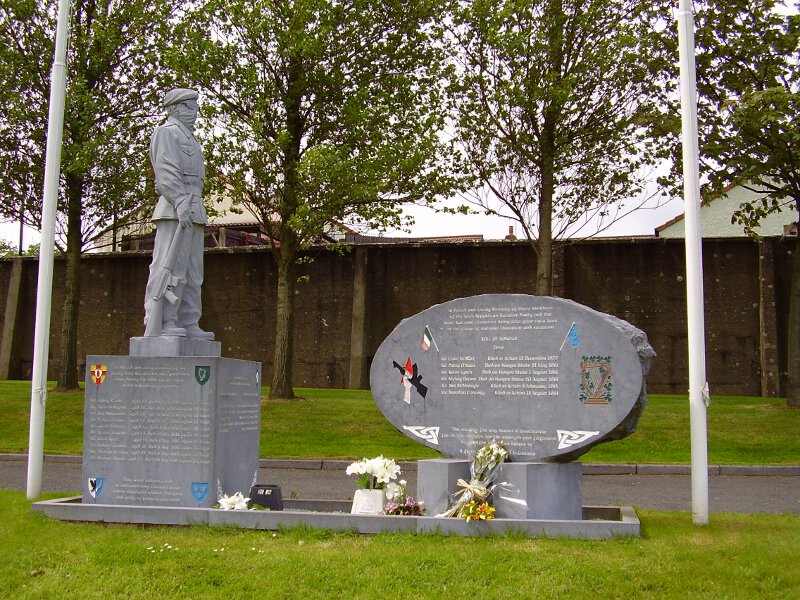
INLA communal plot, Derry/Londonderry City Cemetery © Elisabetta Viggiani
-
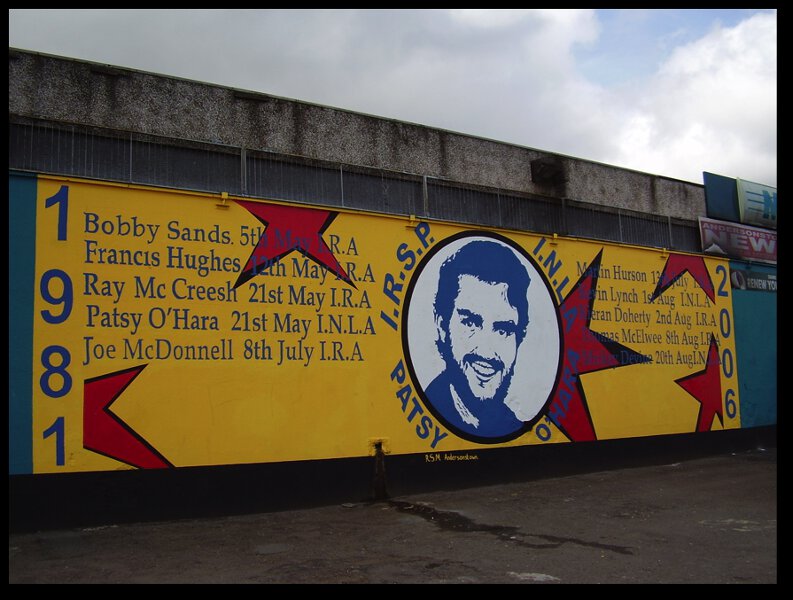
INLA mural in memory of the 1980-81 hunger strikers © Elisabetta Viggiani
-
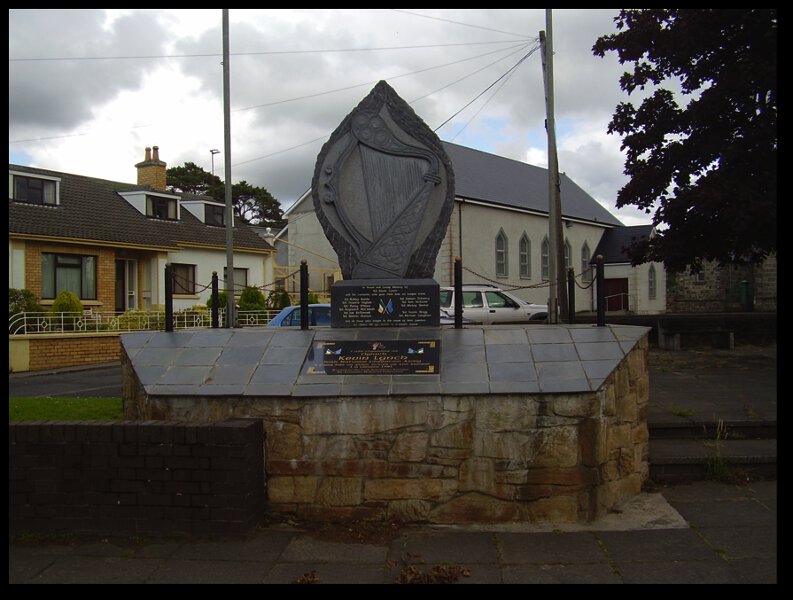
INLA Kevin Lynch memorial, Dungiven © Elisabetta Viggiani
-
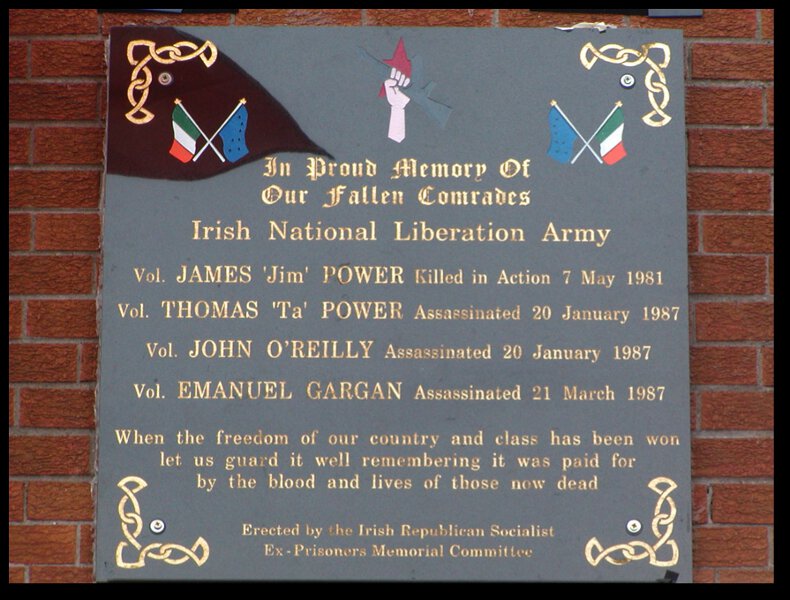
INLA plaque in memory of Power, Power, O'Reilly and Gargan © Elisabetta Viggiani
-
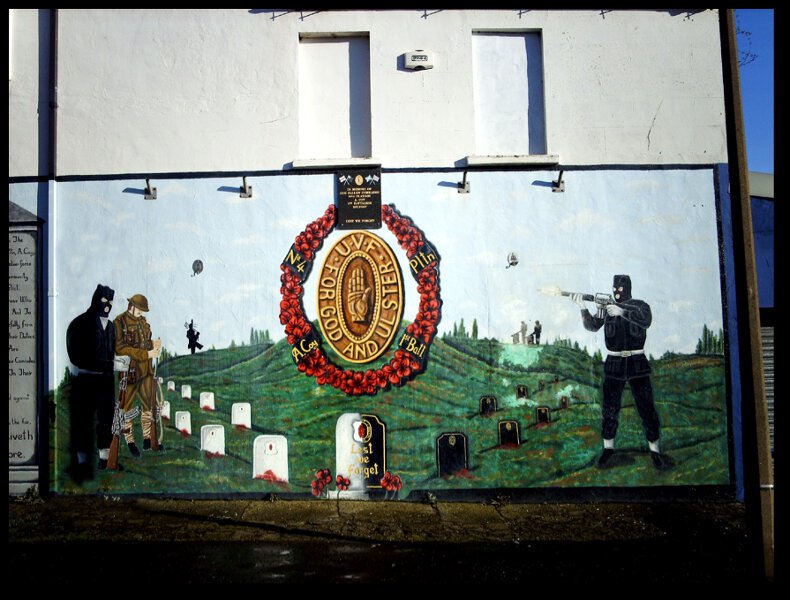
UVF 4 Platoon, A Company, 1st Battalion, West Belfast mural © Elisabetta Viggiani
-
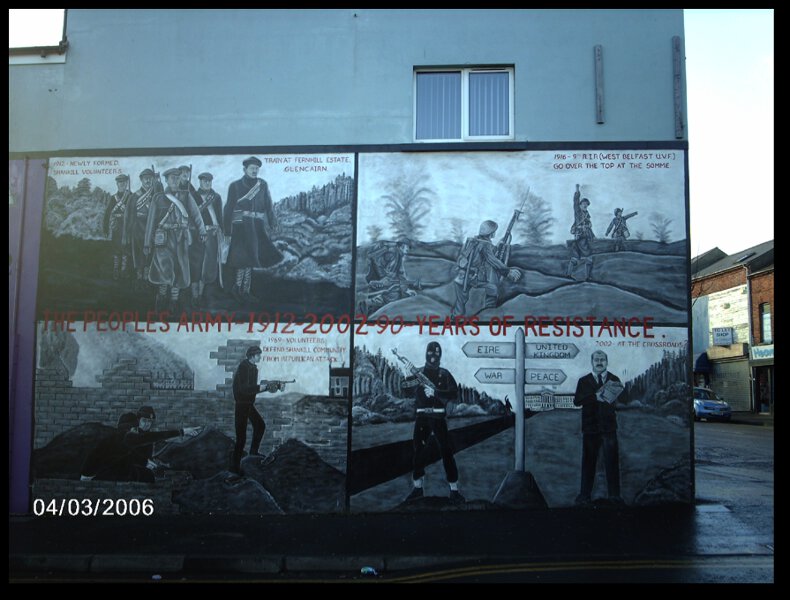
UVF The People's Army mural © Elisabetta Viggiani
-
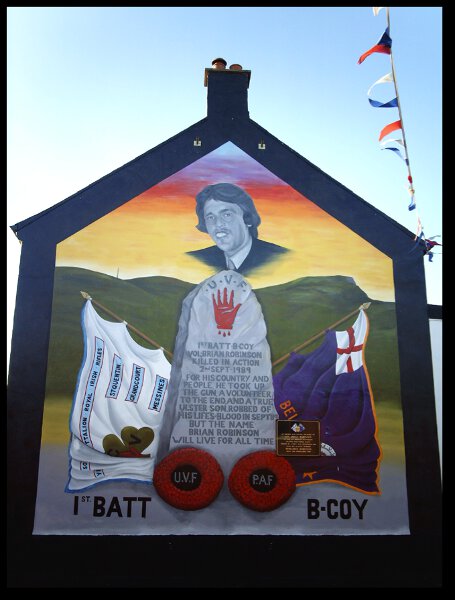
Mural in memory of UVF volunteer Brian Robinson © Elisabetta Viggiani
-
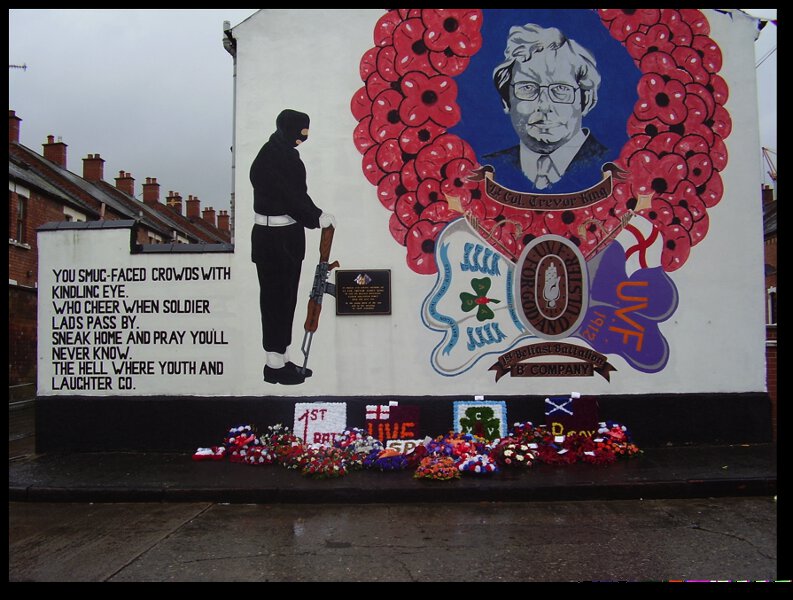
Mural in memory of UVF volunteer Trevor King © Elisabetta Viggiani
-
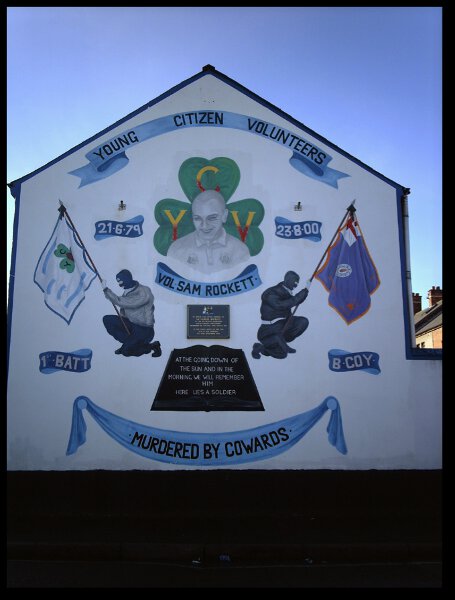
Mural in memory of UVF volunteer Samuel Rockett © Elisabetta Viggiani
-
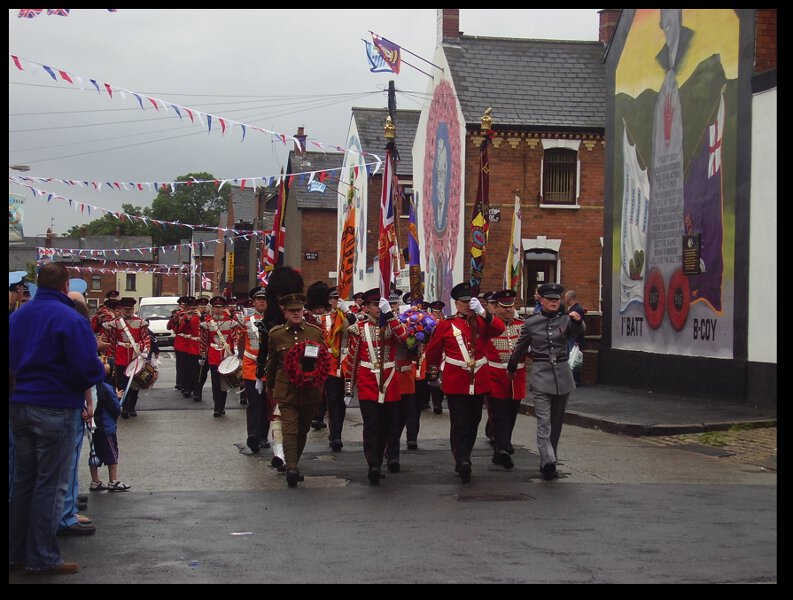
Trevor King memorial parade, 8 July 2006 © Elisabetta Viggiani
-
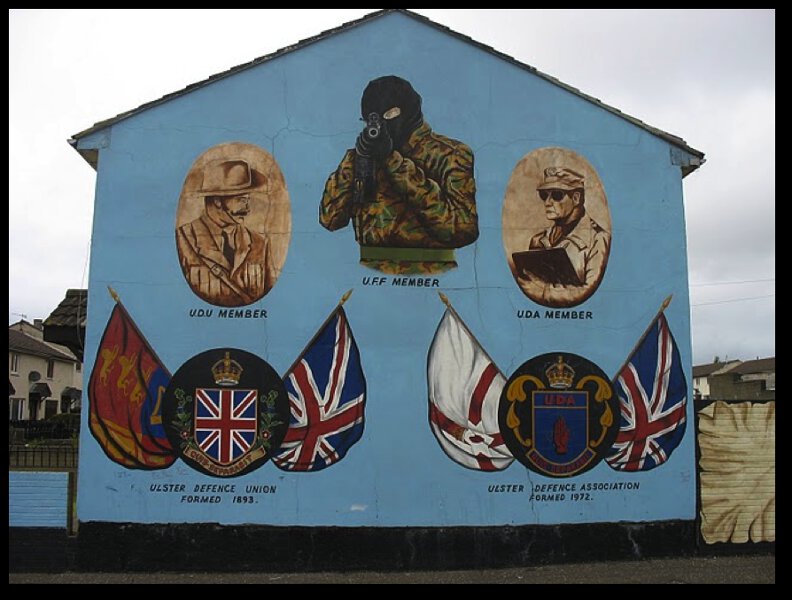
UDA/UDU mural © Elisabetta Viggiani
-
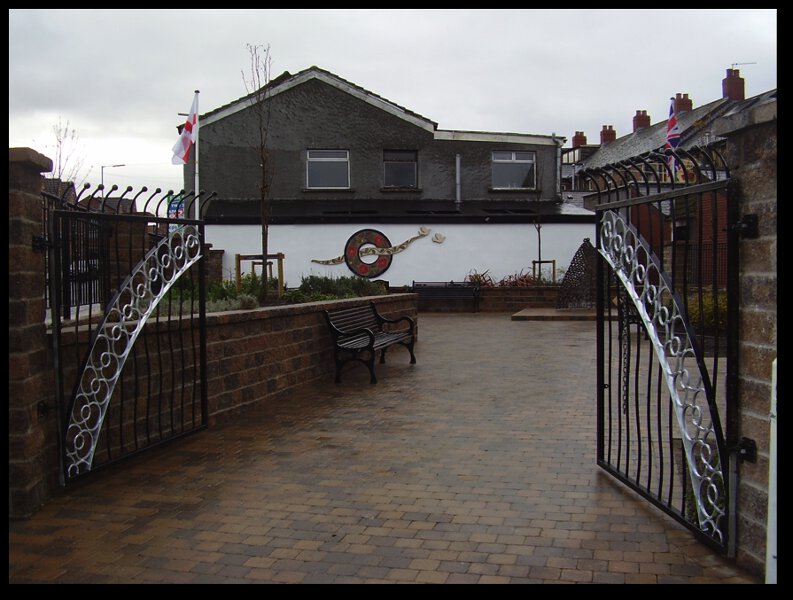
UDA/UFF A Battalion, South Belfast Brigade memorial garden © Elisabetta Viggiani
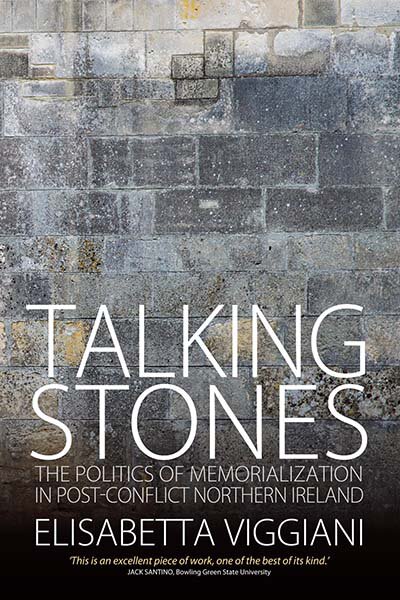
See Related
History JournalsEmail Newsletters
Sign up for our email newsletters to get customized updates on new Berghahn publications.
Talking Stones
The Politics of Memorialization in Post-Conflict Northern Ireland
Elisabetta Viggiani
Foreword by Hastings Donnan
288 pages, 20 illus., 11 tables, bibliog., index
ISBN 978-1-78238-407-6 $135.00/£104.00 / Hb / Published (August 2014)
ISBN 978-1-78533-341-5 $34.95/£27.95 / Pb / Published (September 2016)
eISBN 978-1-78238-408-3 eBook
Reviews
“Viggiani’s text is a thorough examination of many of the iconic artefacts of a forty-year-long conflict that has shaped the politics and memories of generations of people from all sides of The Troubles. In addition to her text, she has developed an extensive website which more fully examines the quantitative data she has collected… her work will not only add to the compendium of extant work but expand our existing knowledge on memorialization in areas of conflict and recovery.” ·Journal of Anthropological Research
“This is an excellent book that makes a major contribution by presenting the most comprehensive study yet written on the meaning and significance, past and present, of the ubiquitous political memorials that mark the urban terrain of one of the most famously politically divided cities in the world.” · CritCom – Council for European Studies
“Viggiani successfully chronicles both intergroup and intragroup forces and rivalries, while also exploring the makers and receivers of the emplaced narratives produced by multiple actors. The book is a valuable contribution to the anthropology of memory and of materiality, and it is also a timely reminder of the presence and prominence of substate and non-state agents in a world where it is often still assumed that states have a monopoly not only on power but on knowledge.” · Anthropology Review Database
“This is an excellent piece of work, one of the best of its kind. The ethnographic approach, with the actual testimonies, is very well done.” · Jack Santino, Bowling Green State University
“This is an excellent account of the reproduction of collective memory and its associated narratives. It delves into the nature and construction of memory and the related forms of propaganda and myth making therein. The inquiry into the construction of memorialization is vital for any scholar of divided societies, nation-building and community construction. The book is important in that it not only describes the processes of such construction but also pinpoints an analysis of the interpretation of meaning.” · Peter Shirlow, Queen’s University Belfast
Description
If memory was simply about past events, public authorities would never put their ever-shrinking budgets at its service. Rather, memory is actually about the present moment, as Pierre Nora puts it: “Through the past, we venerate above all ourselves.” This book examines how collective memory and material culture are used to support present political and ideological needs in contemporary society. Using the memorialization of the Troubles in contemporary Northern Ireland as a case study, this book investigates how non-state, often proscribed, organizations have filled a societal vacuum in the creation of public memorials. In particular, these groups have sifted through the past to propose “official” collective narratives of national identification, historical legitimation, and moral justifications for violence.
Elisabetta Viggiani participated in numerous research projects carried out by the Institute of Irish Studies at Queen’s University Belfast on public displays of identity, political rituals, and symbols in Northern Ireland. She has published in academic journals and co-edited Friends and Foes (2009), two volumes on the themes of friendship and conflict.
Additional images and information available from Elisabetta Viggiani's website:
http://northernirelandmemorials.com/

